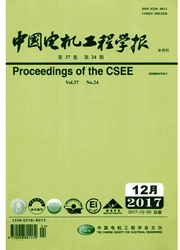

 中文摘要:
中文摘要:
基于生命周期评价和层次分析法,对生物质制二甲醚系统进行环境–资源–经济的综合评价,获得了表征环境影响、资源消耗、经济性及三者综合影响的评价指标。结果显示:从全球角度分析,全球变暖、酸化、光化学污染是最主要的环境影响类型,三者占总环境影响的95%以上;经济性是影响系统综合性能最主要的因素,环境影响次之,资源消耗影响最轻微,且所占份额分别为56%~92%、6%~38%及1%~10%;减小收集半径可有效改善系统资源消耗和经济性,但对环境影响无明显作用。基于该文的工艺系统,建议生物质制二甲醚规模宜在25*104 t/a左右。
 英文摘要:
英文摘要:
Based on life cycle assessment(LCA) and analytic hierarchy process(AHP), the integrated performance evaluation on the Environment-Resource-Economy of dimethyl ether from biomass(Bio-DME) was carried out. And four indexes of the system, i.e. environmental impact, resource consumption, economic cost and integrated performance, were obtained. The results indicate that, from global perspectives, the mainly environmental impact categories are global warming(GWP), acidification(AP) and photochemical ozone formation(POF), and the total of the three categories accounts for more than 95% of the total environmental impact. Also, the economic is the most significant factor affecting the integrated system performance, and about 56%-92% is derived from the economic. About 6% to 38% is derived due to the environmental impact, leading to it as the second significant factor. The effect of resource consumption on the system performance is weak, and it only accounts for 1% to 10% of the integrated performance. Reducing the collection radius can effectively lower the resource consumption and economic cost, but it has no obvious effect on the environment. It is suggested that the appropriate scale for the production of Bio-DME should be about 25 *104 t/a.
 同期刊论文项目
同期刊论文项目
 同项目期刊论文
同项目期刊论文
 期刊信息
期刊信息
